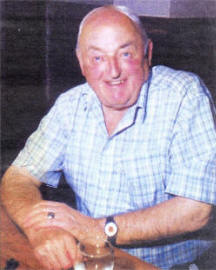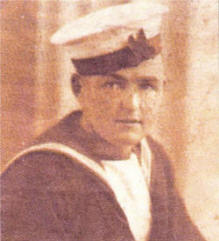
`If I was that age I'd do it all again'
Rev. Canon Alex Cheevers, who will be accompanying a group of local veterans back to Normandy next month to mark the 65th Anniversary and last official commemoration of the D Day Landings, talks to a Lisburn man who was there
 ROBERT Carlisle was born on White Mountain Road. "I
grew up beside Magheragall Methodist Church," he said. From the top of
White Mountain I could see Belfast Lough. I knew that beyond the.
Lough there was a big world I wanted to see.
ROBERT Carlisle was born on White Mountain Road. "I
grew up beside Magheragall Methodist Church," he said. From the top of
White Mountain I could see Belfast Lough. I knew that beyond the.
Lough there was a big world I wanted to see.
"When war broke out in September 1939 I hoped it wouldn't all be over before I got a chance to join up and be part of it all.
"My mother didn't agree. Her brother had been killed in the First World War.
"Despite my Mother, I went to Clifton Street Recruiting Office and joined the Navy."
Little did Robert know what lay ahead of him.
Today Robert and his wife Annie live quietly in their home in Lisburn. No one would guess that 65 years ago Robert was part of the greatest invasion the world has ever seen - the invasion of Hitler's Europe on D Day 6th June 1944.
 He
was serving on H.M.S. Delhi, a Royal Navy destroyer especially armed to
provide anti-aircraft protection for troops invading hostile beaches.
And the Beaches of Normandy were surely hostile.
He
was serving on H.M.S. Delhi, a Royal Navy destroyer especially armed to
provide anti-aircraft protection for troops invading hostile beaches.
And the Beaches of Normandy were surely hostile.
In the preparations for D Day, H.M.S. Delhi with Robert on board sailed from the Mediterranean to Normandy in a carefully planned and timed operation. Delhi was one of over 4,000 ships in the invasion force, most of them crossing the Channel from the United Kingdom, all scheduled to gather, unseen in the darkness, off the landing beaches in the early hours of 6th June.
Dawn on D Day saw Robert as a member of one of the anti-aircraft gun crews on the ship, not knowing what the day would bring. Their role was to make sure that the ships, landing craft and men coming on to the beaches were safe from German Luftwaffe aircraft that would be sent to bomb or strafe the invasion. Delhi was to stay just off-shore as long as was needed, until the Allies had control of the skies and the invasion had been established.
And that is exactly what the crew did. That day they protected over 160,000 men, their tanks and vehicles, landing on the shores of Normandy. And after just a few days, with their job done, H.M.S. Delhi and Robert were off to their next operation.
A book could be written on Robert's war-time experiences. He was involved in almost every major invasion of the Second World War. The invasion of the South of France., North Africa, Sicily, Solerno and Anzio. Spells at Malta, the Adriatic and Yugoslavia. Wherever anti-aircraft protection was needed for the fleet, he was there.
"I spent a lot of time on Atlantic convoys" he recalled. "I was on a convoy to Murmansk in Russia and we got attacked by U-Boats. I saw victims of the U-Boats left in the sea. I was wounded in an explosion that blew the stern off H.M.S. Delhi, killing 59 of my mates — we buried them at sea. I was sent to the Far East to bring home prisoners of war from the Japanese P.O.W. camps."
You know when listening to Robert that he can see it all as clearly as yesterday. He sees the details that can be known only by those who were there.
The final word is Robert's.
"When you're that age you do things that you wouldn't do today. But if I was that age I'd do it all again."
To Robert, and to many others, the free world owes so much. Next week, Canon Cheevers continues his series of interviews with D Day veterans by speaking to Billy Moore.
Ulster Star
29/05/2009
